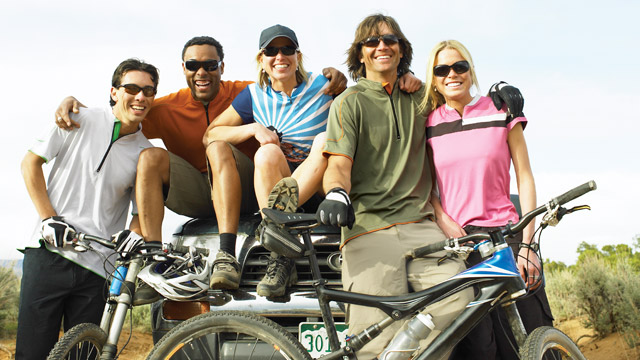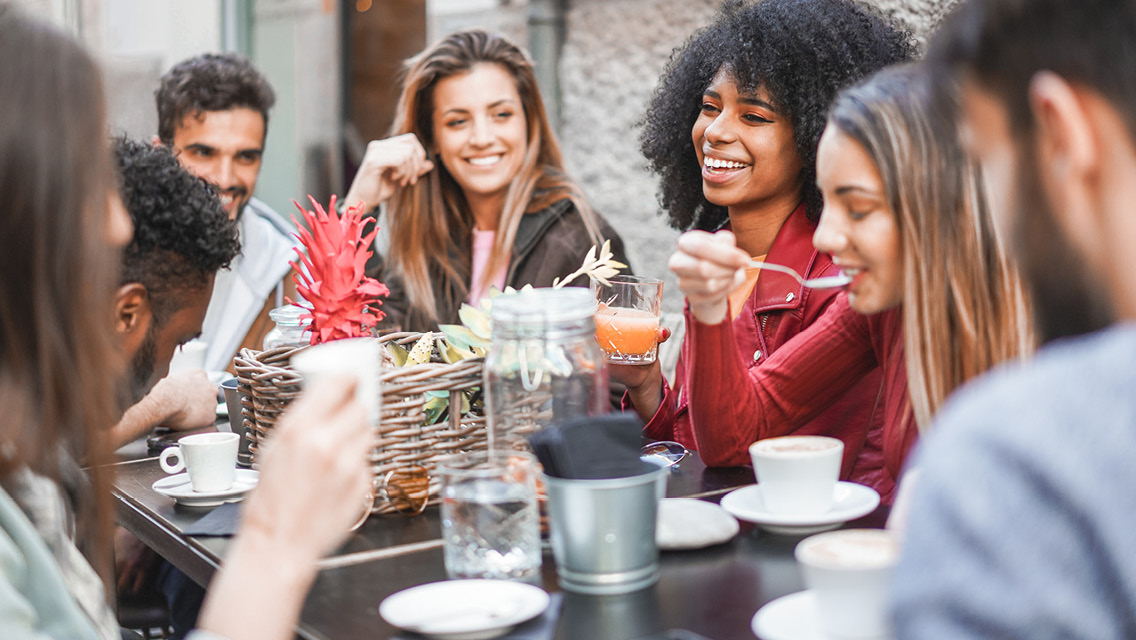Have you ever met someone and felt like you immediately knew them well? Or that you’d made an instant lifelong friendship? Some people chalk that up to kismet. But now there’s science supporting why those connections sometimes happen.
According to recent research completed by Nicholas Christakis, MD, PhD, MPH, and James Fowler, PhD, and published in the Proceedings of the National Academy of Sciences, it turns out that people you choose to associate with tend to have about 1 percent of the same genetic markers as you do. Put that on your family tree, and your friends would roost on about the same limb as your fourth cousin.
“Looking across the whole genome,” Fowler said in a press release, “we find that, on average, we are genetically similar to our friends. We have more DNA in common with the people we pick as friends than we do with strangers in the same population.”
Described as a “genome-wide analysis of nearly 1.5 million markers of gene variation,” the study relies on data from the Framingham Heart Study — the largest that Christakis and Fowler know to provide such detailed genetic data, as well as information on who is friends with whom.
“The researchers focused on 1,932 unique subjects and compared pairs of unrelated friends against pairs of unrelated strangers. The same people, who were neither kin nor spouses, were used in both types of samples. The only thing that differed between them was their social relationship,” per the press release from the University of California, San Diego.
Friends Are Family
“One percent may not sound like much to the layperson,” Christakis said. “But to geneticists it is a significant number. And how remarkable: Most people don’t even know who their fourth cousins are! Yet we are somehow, among a myriad of possibilities, managing to select as friends the people who resemble our kin.”
This isn’t the first time the research duo has pulled information from the vast Framingham Heart Study. We profiled them in Experience Life when their study on the communicability of obesity — and the flip side, healthy living — confirmed that our behaviors can influence the behaviors of our friends and family, and sometimes even our wider social circle (“A Healthy Kind of Contagious,” September 2010).
For instance, your chances of becoming obese, they said, increase by 57 percent when one of your friends is, 40 percent if it’s one of your siblings, and 37 percent if it’s your spouse. But it’s not just negative health outcomes that are catching: In the study, which tracked more than 15,000 men and women in the Framingham study, several groups of lifelong friends appeared to have influenced each other to remain shockingly fit well into their 70s. Whether or not you’re aware of it, the healthy changes you make to your own life ultimately reverberate through your whole social circle, eventually coming right back to you in the form of increased social support.
But this most recent genetic study also revealed one more thing that may relate back to the contagiousness of our lifestyles, according to the press release: “The paper also lends support to the view of human beings as ‘metagenomic,’” Christakis said, “not only with respect to the microbes within us but also to the people who surround us. It seems that our fitness depends not only on our own genetic constitutions, but also on the genetic constitutions of our friends.”
Gives a whole new meaning to “friends are the family you choose” phrase, doesn’t it?


This Post Has 0 Comments